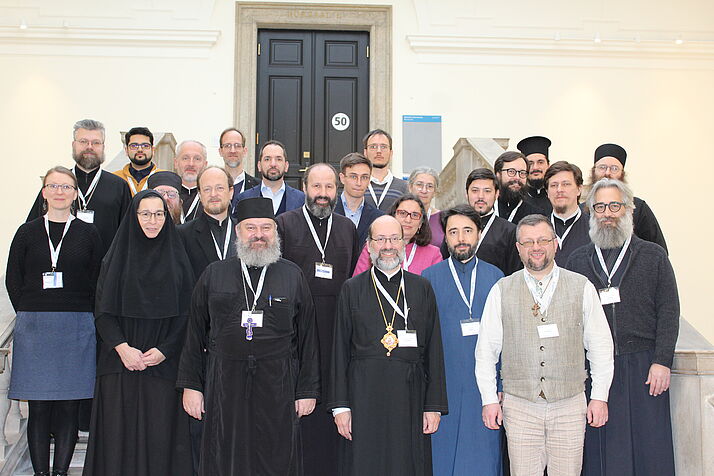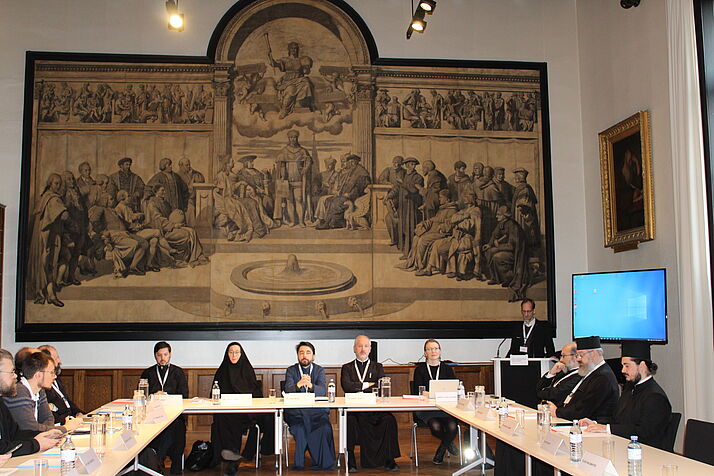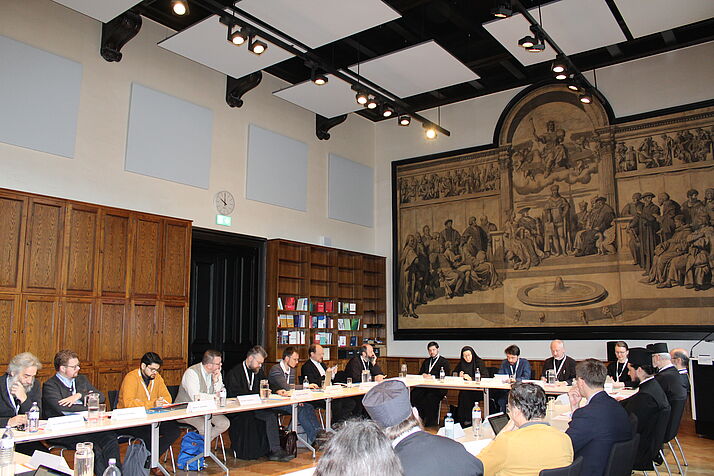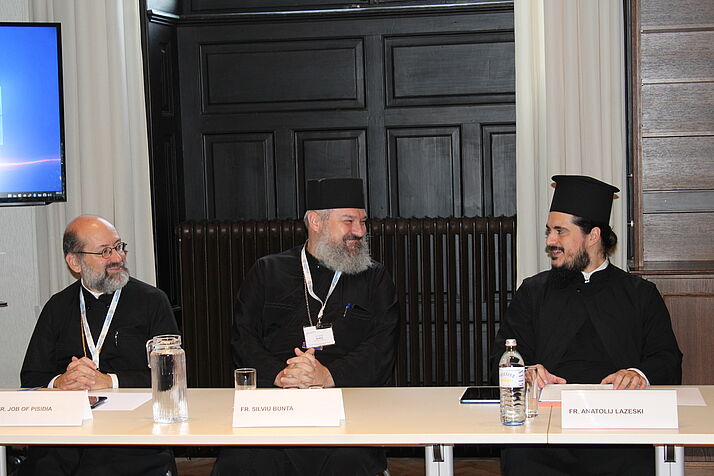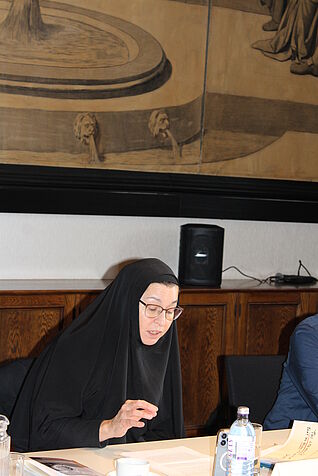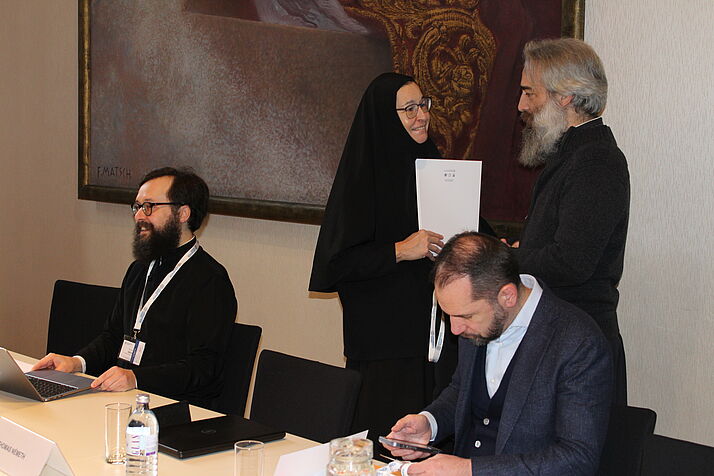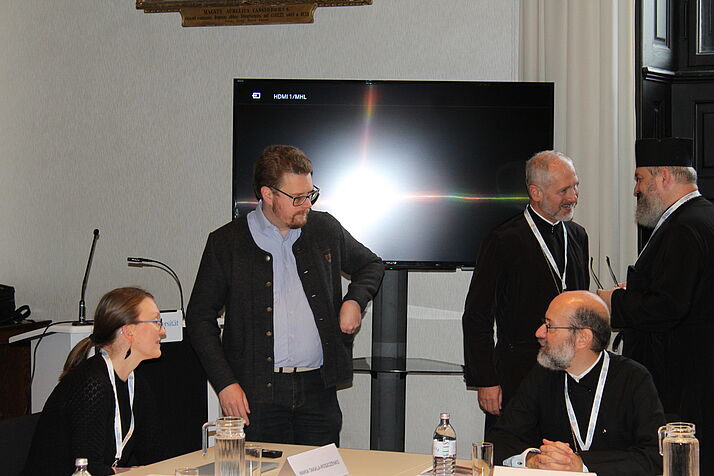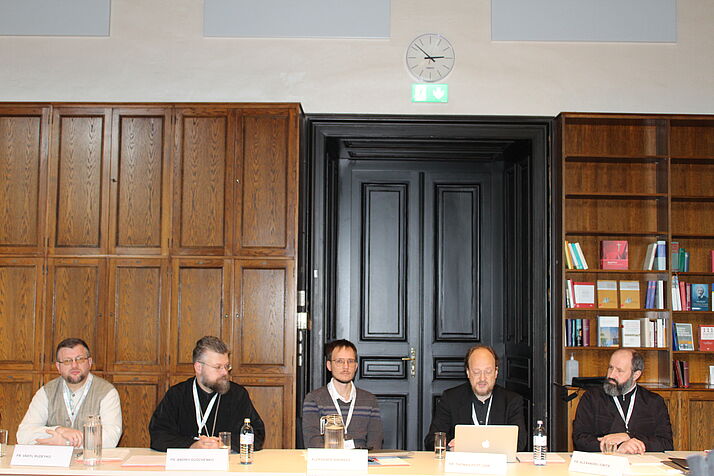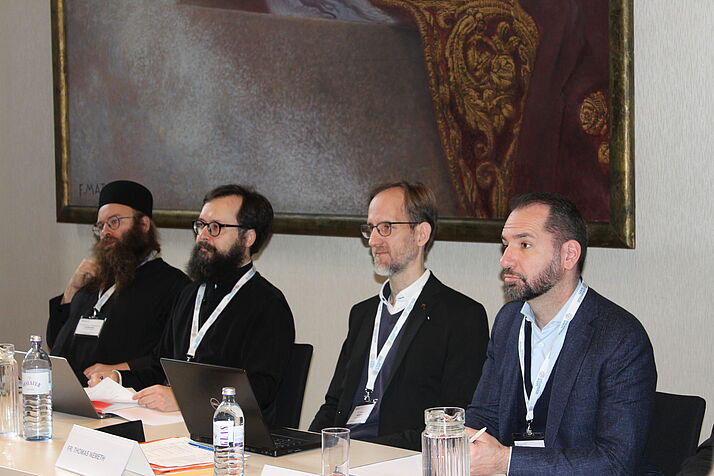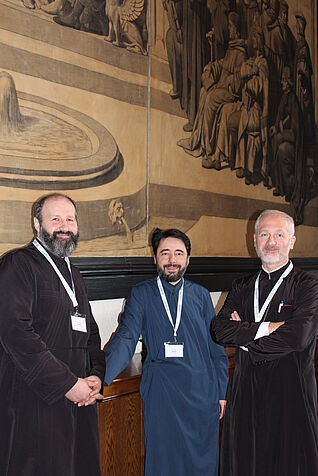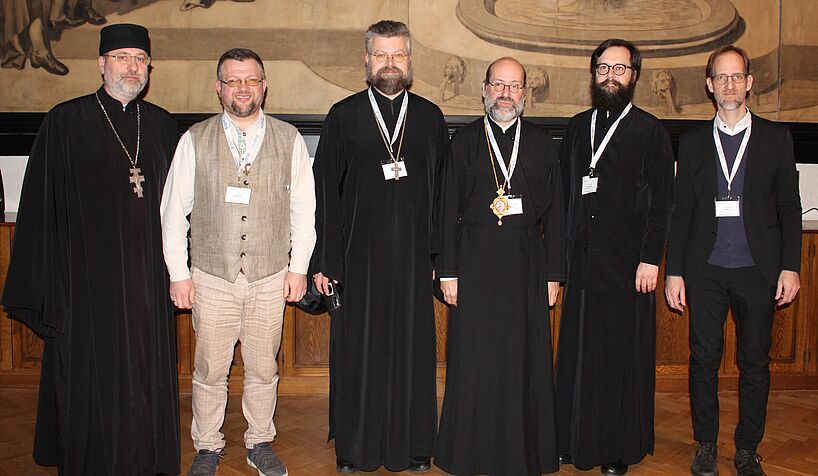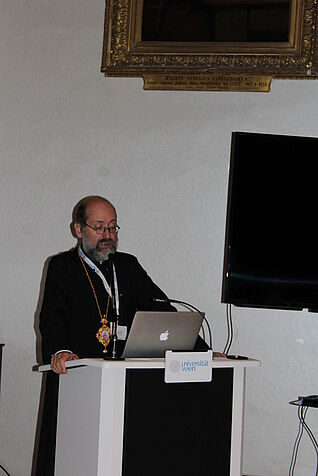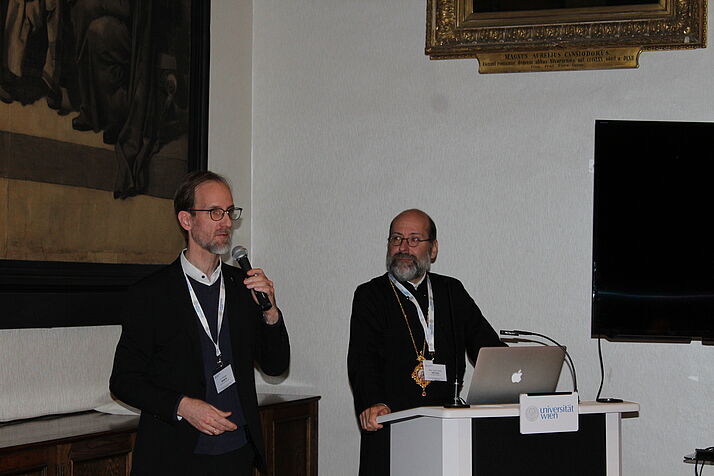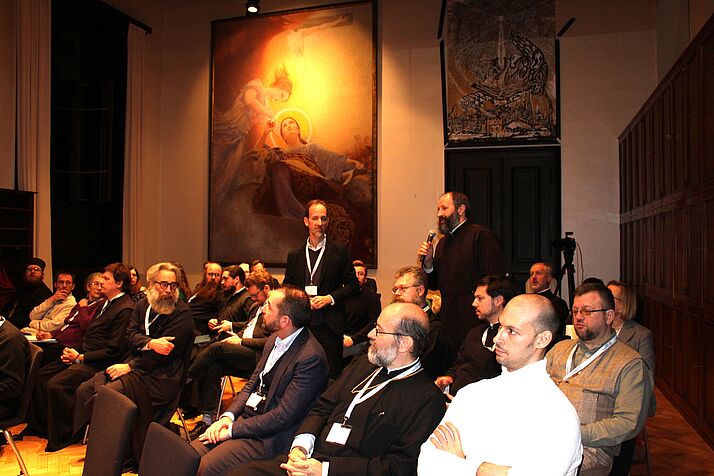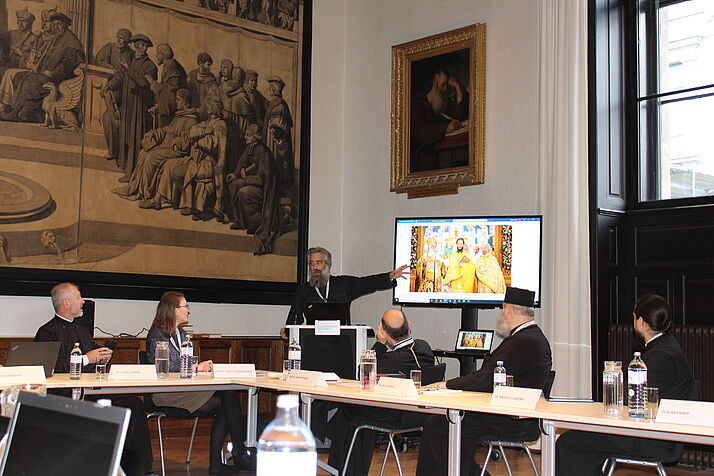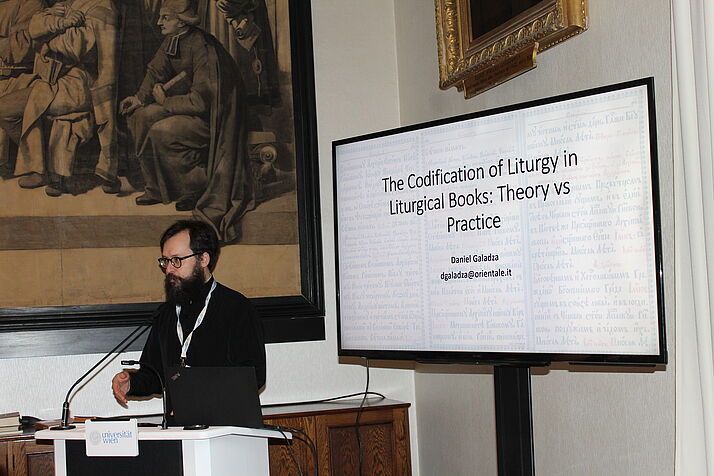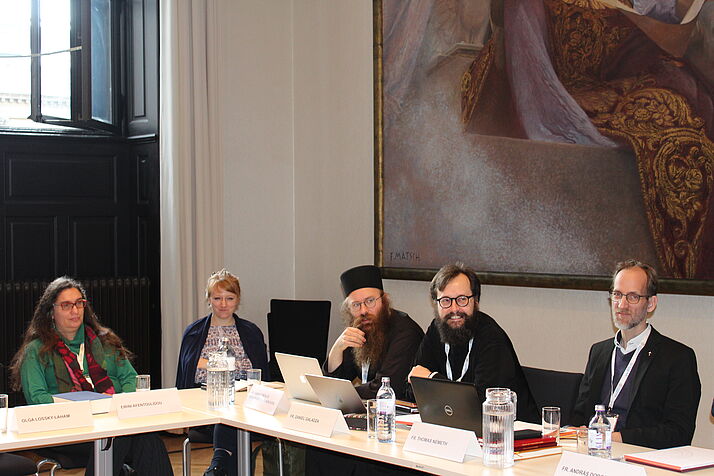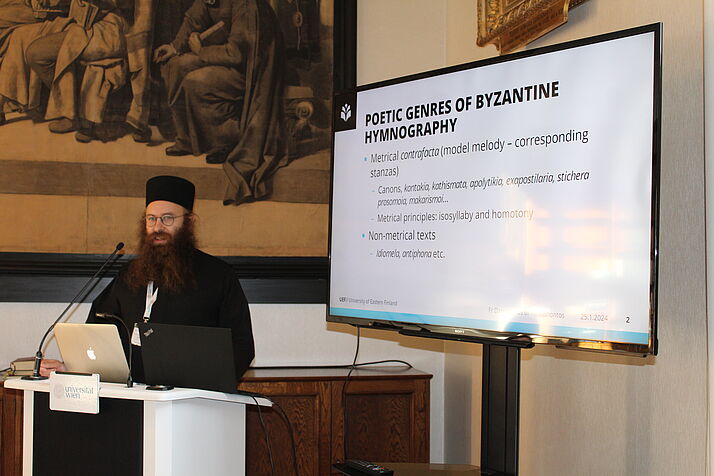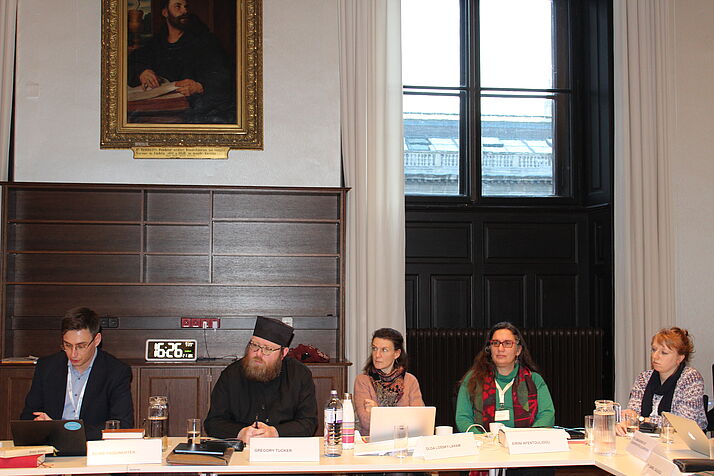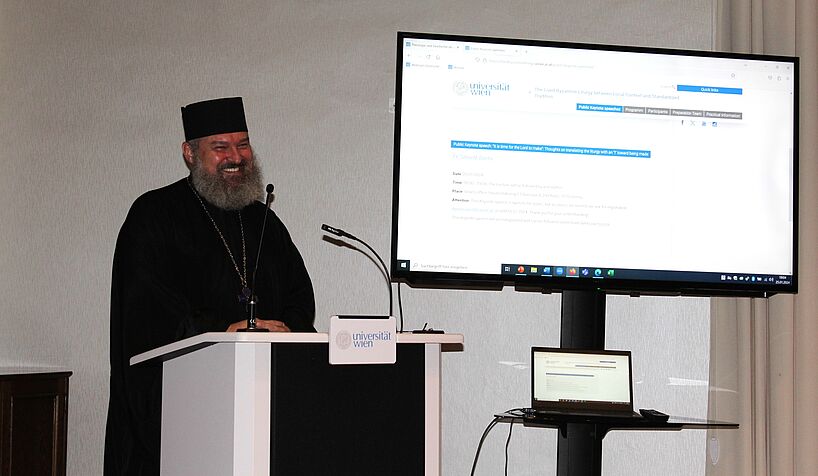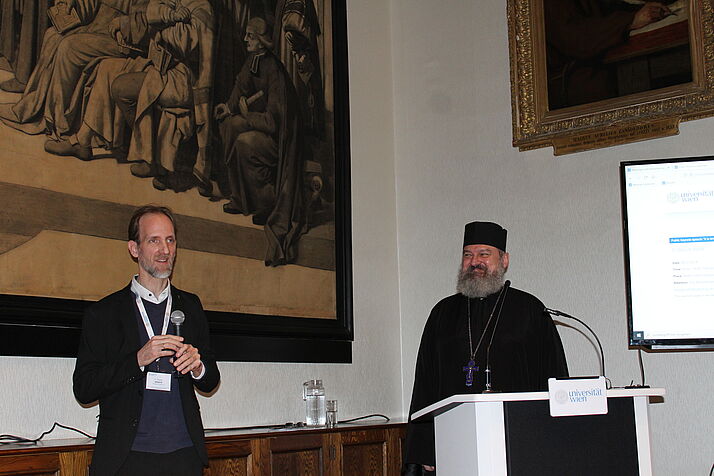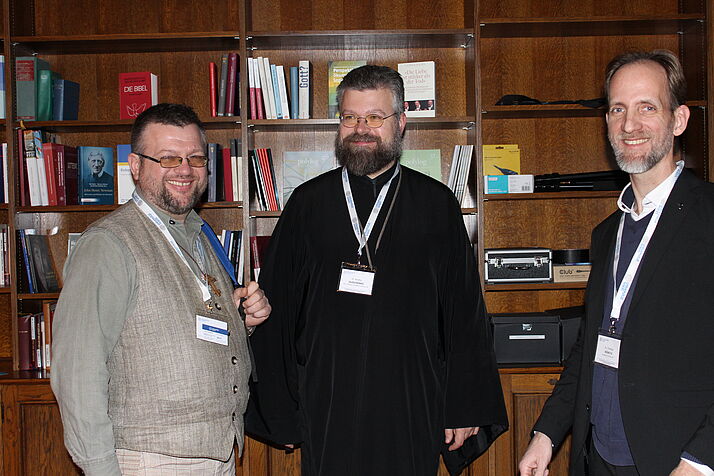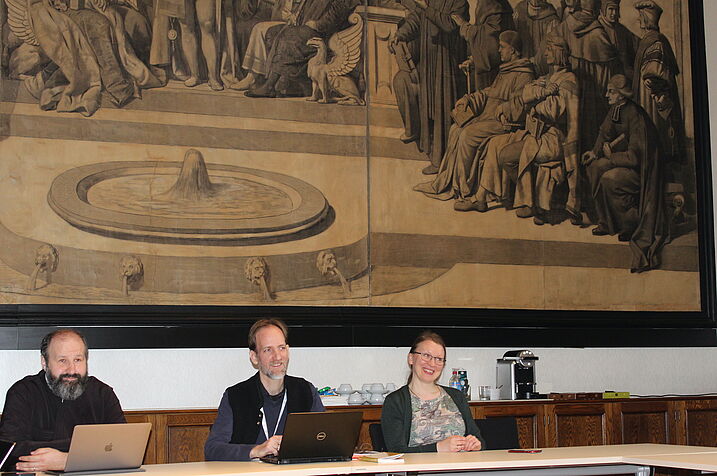Photo Gallery "Lived byzantine Liturgy"
Please find our report in English and German.
A report in ukrainian language is available here.
In the KathPress publication "Information Orthodoxie" from 13.02.2024 appeared an article about our event.
The workshop consisted of
two public keynote speeches:
- Liturgy in Diaspora
- “It is time for the Lord to make”: Thoughts on translating the liturgy with an “I” toward being made
four sessions (not open to the public) with the panels:
- Liturgy in 'Diaspora' and New Contexts
- Liturgical Renewal as reflected in Liturgical Books
- Editions of Liturgical books
- Liturgical Translation and Music
Scope:
The standard text of the Byzantine liturgical books became fixed through the editiones principes of the 16th century. This text presumes the continuity of the Byzantine Empire and largely represents a monastic vision of the Byzantine rite aimed at helping one approach the ideal of unceasing prayer. However, the Byzantine Empire no longer exists, and the monastic ideal of unceasing prayer is not applicable in a normal parish and, consequently, the liturgical texts are routinely abbreviated and adapted in the setting of parish worship.
In the meantime, different churches edited collections of texts (Anthologia, Sborniki, prayerbooks, etc.), which intended to meet liturgical needs, but raise new questions about practice of worship. Research has revealed in recent decades that the Byzantine rite is in a state of constant transformation, with some newer parts taking precedence and some older parts fading into oblivion. But very few details are known about the emergence and the impact of the liturgical books on the Byzantine rite itself and its services.
We have invited scholars from liturgical, historical and other related fields to a workshop in which we want to discuss the differences between lived Byzantine worship, reflected in manuscripts and local traditions, and the Byzantine rite standardized through the printing of liturgical books during the last two centuries. Furthermore, the role of contemporary translations and the situation of the diaspora should be addressed.
The outcome of the Workshop will be published in an peer-reviewed and open source publication.


